
In order to properly take care of any part of the endocrine system, one must know how to nutritionally support it. Certain elements are earmarked to individual glands and systems in the body to ensure optimum performance. Because the thyroid gland has a direct connection to the brain via its amino acid L-tyrosine, more than the thyroid gland will be picked up. Moods are greatly benefited by the raise of dopamine. There are other amino acids tied into neurotransmitters that boost moods. Support through nutrition and the supplements to look into when certain minerals are not part of the diet are included in the following information.
How to Take Care of this Very Important Gland
Other Factors Related to Thyroid Disorders
The following is a list of circumstances and conditions that can impact TSH levels. Many people experience several disruptors of thyroid hormone and functioning without realizing how they may be impacting their coping skills and happiness. A number of these items are broad topics covering a whole host of imbalances that require attention to alleviate the stress put upon the thyroid gland and the endocrine system as a whole.
1. Pain and inflammation
2. Obesity and dieting too often
3. Insulin resistance and Diabetes
4. CFS (Chronic Fatigue Syndrome)
5. Stress
6. Adrenal exhaustion and excess cortisol or low cortisol
7. Depression, PSD (Post Traumatic Disorder), Schizophrenia
8. Fibromyalgia
9. Leptin resistant: A hormone expressed in the hypothalamus; a regulator of food and body weight
10. Nutrient deficiencies
11. Food Intolerances (especially Gluten) and/or Thyroid Food Inhibitors
12. Aging process
13. Anemia
14. Low Hydrochloric acid: affects red blood cells from adequately distributing thyroid hormone
Pregnant Women and the Thyroid Gland
Thyroid disorder is one of the most prevalent complications among pregnant women. An endocrine problem such as this can impact the health and well being of the fetus as well as affecting infertility and miscarriages. Monitor the thyroid gland closely.
Avoid Iodine for Hyperthyroidism – Thyroiditis – Hashimoto’s Disease
Similar to other thyroid conditions, the standard thyroid test may not include T3 levels. Since conventional testing typically measure T4 and thyroid stimulating hormone (TSH), without examining T3 levels, ensure this area of testing has been upgraded. In the incidence of Hyperthyroidism and Thyroiditis, the thyroid gland is releasing too much thyroid hormone.
Food Intolerances and Auto Immune Disorders of the Thyroid Gland
Another area of testing is for foods or substances that may be triggering an autoimmune response. Causes may involve problems with the immune system, food intolerances like gluten, bouts of high fever and Grave’s disease (an autoimmune disorder). These and more can cause hyperthyroidism and cultures that consume high amounts of iodine as seen with the Japanese, more often than others contract Hashimoto’s disease. Other names are Thyroiditis and inflammation of the thyroid. Medications such as interferon-alpha, interleudin-2, lithium and amiodarone can bring about Thyroiditis.
*Alternative Treatment for Hyperthyroidism and Hashimoto’s Disease
The treatment involves many areas and uncommon alternative remedies that are too detailed to put in a blog post. For a little guidance, there may be more than one reason why the immune antibodies are attacking the thyroid gland. One area can be diet related which allopathic medicine does not explore. The antibodies need to be blocked – this can be achieved through natural substances. Inflammation is another problem that needs addressing.
How Do I Care for the Thyroid Gland?
The thyroid gland requires a small amount of iodine daily in order to make thyroid hormone. During the 1950’s the incidence of goiters was such a problem that salt became iodized to ward off goiters (an enlarged, overworked thyroid). Salt is not the direction to take when promoting health and the soil has far fewer nutrients than years previous, demonstrating that a supplement is required to feed this gland. The good news is that it is an inexpensive product to buy and there are several sources such as sea plants like (kelp, dulse and seaweed). Other choices include potassium iodide, full thyroid support in a combination product and liquid iodine.
*As shown above, avoid iodine when the thyroid gland has become over active or inflamed, until the condition is fully healed and balanced. Consult your doctor for testing to ensure these conditions are completely rectified.Nutrition
Whether the thyroid condition is hypo or hyper, avoid sugar and caffeine products. Often times, people with low thyroid condition turn to these stimulants to compensate for their lack of energy. In general, eat less starchy foods, carbs, all sugar and sugar products unless it is deemed safe for a diabetic, and eat more non starch vegetables and greens.
As stressed throughout this blog, up your omega 3 fatty acids in the form of fish oil and seed oils such as flax seed. Glands require high quality protein and fat. Other good fat sources include nuts and nut butters, avocados, seeds like flax and sesame, olive oil, ghee, coconut oil and milk products, full fat and aged cheese, yogurt, kefir and cottage cheese.
Underactive Thyroid
The lack of key nutrients can promote a thyroid condition especially a hypo state. Add quality supplements or herbs to pick up mineral and vitamin deficiencies. Use whole food supplements whenever possible such as those found in nutritional yeasts – all B vitamins and amino acids; algae – blue or green for a complete food source; raw juices for antioxidants, nutrition and enzymes; sea vegetables or algae for trace minerals and iodine; while vitamin D3, selenium, zinc, alpha lipoic acid and magnesium should be considered.
L-Tyrosine Boosts More Than the Thyroid Gland
L-Tyrosine is an amino acid earmarked for the thyroid gland yet at times of under activity, it offers more than one benefit. Most often amino acids are tied into neurotransmitters of the brain. In the instance of L-tyrosine, it is a required element for Dopamine in the brain. Hence moods are boosted as well as the thyroid gland. A win – win, all way around. Another amino acid, L- Glutamine, is required for cell replication of the intestinal tract and interrelates with Glutamate, another neurotransmitter. Glutamate interacts with L-Glutamine promoting feelings of well being amongst several other functions.
Note: L-Tyrosine is not recommended during hyper states or conditions of inflammation involving the thyroid gland.
Hypo and Hyper Thyroid Depends On Probiotics Being Available
Thyroid Test – How Accurate is it?
Iodine – Best Supplements for Health
L-Tyrosine and Iodine – Main Energy Components
Copyright © 2015 – All Rights Reserved – Michelle Honda Ph.D.
Announcement
Look for my new forthcoming books “Reverse Heart Disease Naturally” (Jan.31, 2017) and “Reverse Inflammation Naturally” (May 31, 2017) and “Reverse Thyroid Diseases Naturally” (Fall 2017)
Disclaimer
While close attention was given to the accuracy of information in this article, the author accepts neither responsibility nor liability to any person with respect to injury, damage, loss or any circumstances involving alleged causes directly or indirectly related to the information in this article. The sole purpose is to educate and broaden ones awareness. This information is not meant to replace medical advice or services provided by a health care professional.





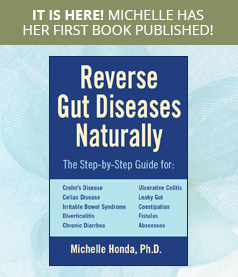

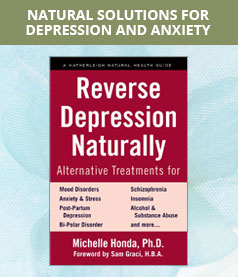
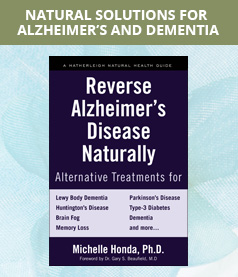
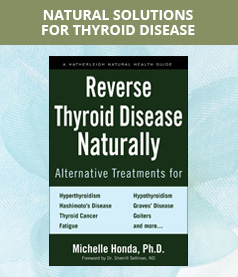

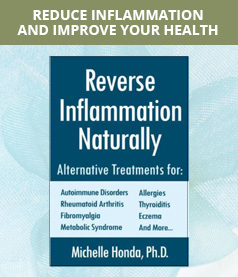
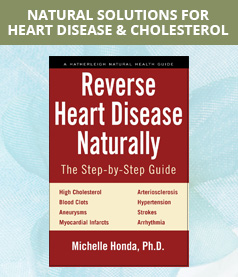
Follow Us!